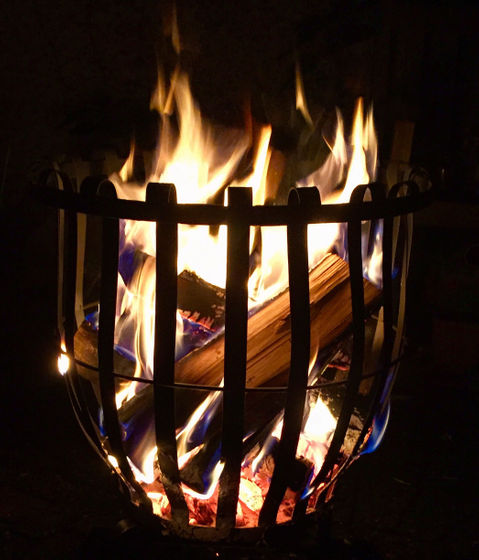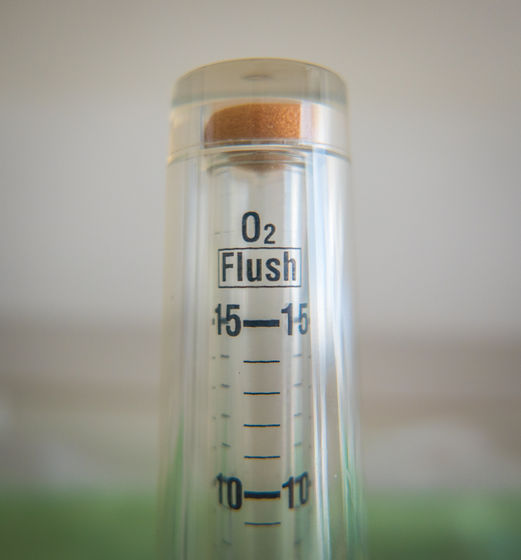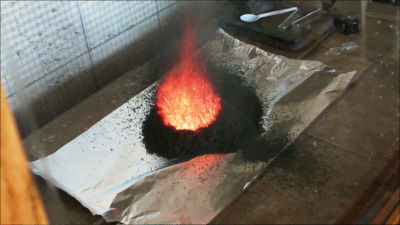Why is the flame hot?

'Burning things' refers to the violent oxidation reaction that occurs when combustibles react with oxygen. Klaus Schmidt-Rohr of Brandeis University explains the fact that organic molecules 'generate heat without exception' when they burn.
Why Combustions Are Always Exothermic, Yielding About 418 kJ per Mole of O2 | Journal of Chemical Education
Flames are so important to humankind that it can be argued that they had a rapid impact on human social evolution . From adults to children, it is common sense that 'flames give off heat', but Schmidt-Rohr points out that 'why flames give off heat in the first place?' Is not explained in technical literature, let alone textbooks. I will.

One of the ways to know the heat generated by a flame is to 'determine the energy of the combustion reaction from the
According to Schmidt-Rohr, the reason why flames generate heat is that 'the double bonds in the oxygen molecule (O 2 ) are abnormally weak.' In fact, the bond dissociation energy of a double bond in O 2 is 498 kJ / mol, while the bond dissociation energy of a single HH bond is 436 kJ / mol, C—H bond is 410 kJ / mol, and CC bond is 350 kJ. At / mol, the bond dissociation energy is slightly higher than that of a single bond even though it is a double bond in O 2 . By comparing the combustion of more than 500 organic compounds, Schmidt-Rohr calculated that about 418 kJ of heat is released for every 1 mol of O 2 reaction, regardless of the organic compound used for combustion. I will.

In this way, even if you do not know the molecular structure of organic matter such as fuel, you can estimate the heat of combustion if you know the elemental composition, so Schmidt-Rohr said, 'Fuels such as hydrocarbons, ethanol, hydrogen, and glucose are often' It is said to be 'rich in energy,' but in reality, oxygen molecules are the molecules that are rich in energy. ' On top of that, Schmidt-Rohr asked the important question, 'Why is the flame hot?', 'It has a stronger bond because the double bond of O 2 is abnormally weak compared to other double bonds. When molecules such as water (H 2 O) and carbon dioxide (CO 2 ) are generated by combustion, the potential energy of those molecules decreases, which is the release of heat and the increase in thermal motion of gas molecules, that is, the flame. It leads to heat. '
Related Posts:
in Science, Posted by darkhorse_log







